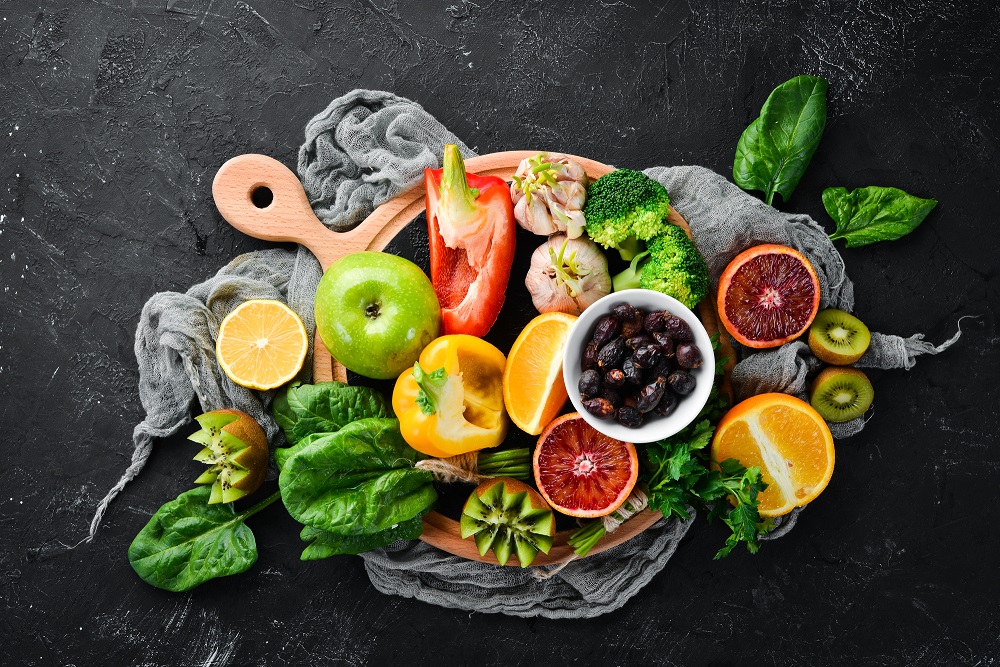
Foods That Lower Blood Pressure Naturally
There are many patients with high blood pressure that often ask me how they can lower blood pressure naturally. I thought I would talk about one way it could be done – by choosing the right foods.
Let me start by saying that I will not be discussing lowering salt in your diet as a way to lower your blood pressure. It is something I am sure you will be very well aware of.
But now that I have mentioned it already, I might as well reiterate that keeping your salt intake low, avoiding junk foods and salty snacks, keeping your pickle intake at bay and making sure you check the label on the ready foods you purchase for salt content can all help keep your blood pressure controlled.
Today, I am going to discuss specific foods, fruits and veggies that can help you bring your blood pressure down in a natural way.
The Problem With High Blood Pressure
High blood pressure is a common problem in India and across the world. It is estimated that 1 in 5 individuals in our country have this problem.
The Indian Society of Hypertension has issued specific guidelines on how elevated blood pressure should be managed, and we physicians follow the recommendations laid out.
It is essential to keep blood pressure under control, mostly because of the damage it can cause should it remain unchecked. Heart attacks, strokes, kidney disease, eye disease and a multitude of other problems are closely linked to high blood pressure.
The treatment of high blood pressure revolves around lifestyle modification, diet, exercise and medication.
The Dietary Approaches To Stop Hypertension, or DASH diet, has gained notoriety for being effective in lowering blood pressure. It requires the individual to increase their fruit and vegetable intake, lower their salt intake and lower their meat intake to keep their blood pressure under control.
What I have covered here is specific foods that have evidence supporting their blood pressure lowering effect. I have limited my discussion to vegetarian sources.
Foods That Lower Blood Pressure Naturally
So, let’s begin……
Beetroot
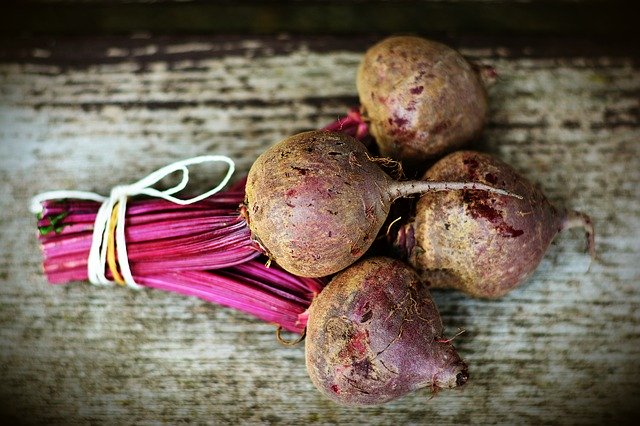
You either love or hate beetroot. I, for one, love it. Beetroot has multiple health benefits, and one such benefit is lowering your blood pressure.
It does so due to its high content on inorganic nitrates (NO3-). It is one of the highest among all vegetables, with over 250 mg of nitrates per 100 gram of beetroot.
Inorganic nitrates have the property of relaxing the blood vessels in the body, hence reducing the pressure within them. They also improve the health of the tiny cells that line the inner surface of the blood vessels (called endothelial cells) of the heart and the rest of the body, making beetroots a heart-health veggie.
In one study that evaluated 43 trials looking at beetroot juice supplementation and blood pressure, they found that regular consumption lowered systolic blood pressure by around 9 mmHg. In fact, this was equal to taking a single tablet, which would usually lower the blood pressure by 10 mmHg. Studies suggest that even a 5 mmHg reduction in your blood pressure can lower your risk of stroke.
However, do note that it has to be regular consumption, not just once in a while. The data looked at supplementation for > 14 days.
It also appears that the effect of blood pressure lowering with beetroot juice was greater in those who were affected by chronic diseases (non-healthy people) and those who were overweight, compared to healthy individuals.
Of course, even if you are healthy, you will still reap the benefits of blood pressure control.
Another study looking at beetroot juice supplementation in 20 elderly people with heart disease (but normal heart function) found that one week daily intake lowered blood pressure. Incidentally, it also enhanced their exercise endurance.
So if you are in the older age group and are looking to lower your blood pressure naturally, then have a glass of beetroot juice every day. It is safe even if you have diabetes, provided you do not add sugar to it!!!
You could also make beetroot bread if you wish to. Apparently that can also lower your blood pressure.
Garlic
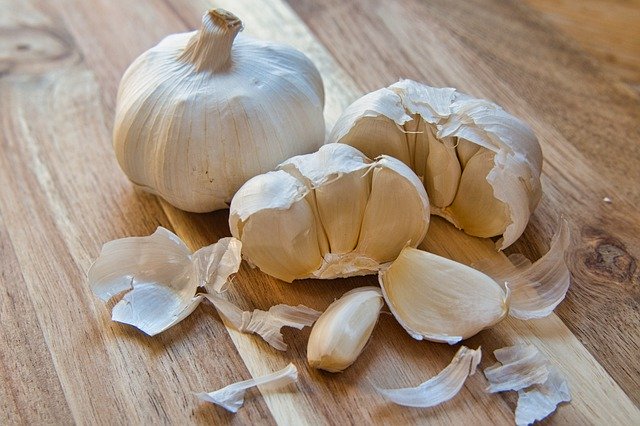
Garlic (Allium sativum) has been around for generations, being used as a spice in cooking and medicine as well.
There is robust scientific data published that has demonstrated that garlic can lower your blood pressure. The effect is believed to be due to the active compound present in garlic called Allicin and S-allylcysteine.
The blood pressure lowering effect of garlic is mediated through the release of nitric oxide and hydrogen sulfide, both of which can relax the blood vessels. It also reduces oxidative stress of the cells within the blood vessels, keeping them healthy and fighting fit.
In a study that evaluated 20 different clinical trials involving garlic supplements, it was found that blood pressure in those with high blood pressure was lowered by around 8 – 9 mmHg systolic and 6 – 7 mmHg diastolic. The effect was not that prominent in those who did not have high blood pressure.
One study found that the blood pressure reduction seen with garlic supplements consumed regularly over 24 weeks was equivalent to taking tablet Atenolol everyday.
Another trial looking at supplementation every day of 480 mg of aged garlic extract over a 12 week period lowered systolic blood pressure by 11.8 mmHg.
Similarly, regular supplementation with garlic powder lowered diastolic blood pressure from 102 mmHg to 89 mmHg in 12 weeks.
It is not clear how much garlic should be consumed regularly to lower blood pressure. Studies seem to look more at garlic supplements (oils, powders, pills etc) rather than fresh garlic itself.
The allicin in fresh garlic can irritate the stomach and lower red blood cells count if taken in large quantities. Also, if you are taking blood thinners, it may be wise to consult with your doctor about garlic and garlic based supplements, as they can thin the blood a little.
Watermelon
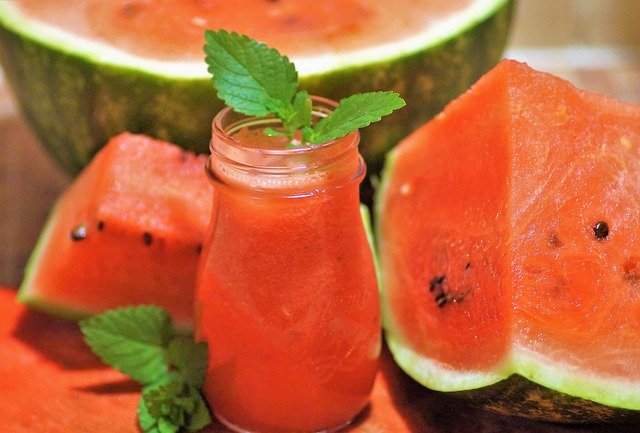
A summer fruit favourite, watermelon is often consumed to quench thirst and feel refreshed on a hot summer day in India. Unbeknownst to many, watermelon too has a number of health benefits, and one of them is lowering your blood pressure.
In a study that looked at 20 subjects supplemented with watermelon extract everyday for 6 weeks, a significant reduction in blood pressure was noted. The group included those with mildly elevated blood pressure (prehypertension, a term now abandoned) and high blood pressure.
In another study that looked at 11 women and 3 men who were middle-aged and obese, watermelon supplementation over a period of 6 weeks lowered blood pressure significantly.
Similar effects have been seen in post-menopausal women with high blood pressure.
The effect of watermelon on lowering your blood pressure is believed to be due to a compound called L-citrulline, which is converted to L-arginine in the body. This aids the release of a compound called nitric oxide.
Nitric oxide is a potent molecule that relaxes blood vessels and reduces blood pressure.
Best way to eat watermelon
I love watermelon juice. It’s great when blended with fresh green grapes. Even cold watermelon pieces by itself are delightful! Alternatively, you could have a fresh watermelon salad as well.
Spinach
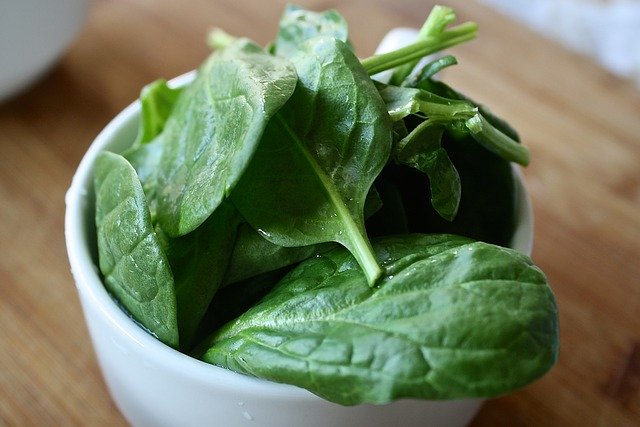
Spinach is probably the most popular green leafy vegetable consumed in India. Not only is it packed with iron and other minerals, it contains nitrates which have been proven to lower blood pressure.
Researchers in Australia have found that consumption of a single nitrate-rich spinach meal increased levels of nitric oxide in the blood, thus lowering blood pressure. Overall, it showed that this would improve the health of your heart.
In another study, participants who ate spinach daily for 7 days versus those who ate asparagus daily had a greater reduction in their blood pressure. This is because spinach has a greater nitrate content, while asparagus has a lower nitrate content.
Grab a bowl of spinach if you can every day. You can enjoy it as a soup or just in salads. It will help lower your blood pressure naturally.
Millets
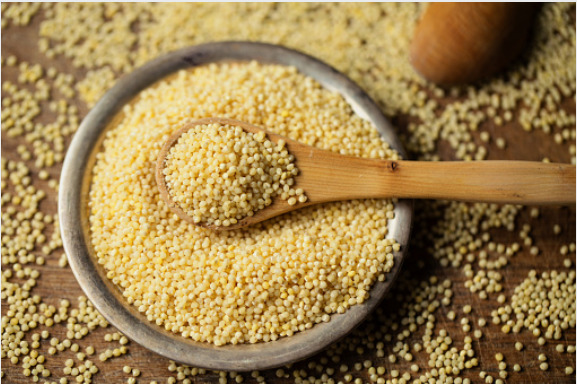
Millets are emerging as a popular food in India now. They are being used more by people with diabetes, mostly because they have a low glycemic index and do not increase blood sugar levels much.
Interestingly, millets can lower your blood pressure as well.
In a study that looked at 45 patients with mild, untreated hypertension, regular consumption of 50 grams of foxtail millets over a period of 12 weeks lowered both systolic and diastolic blood pressure. It also lowered body weight and fat percentage.
There are not too many studies really evaluating millets and blood pressure reduction. But given it’s additional health effects and safety in diabetes, it is worthwhile making it a part of your regular diet.
Green Tea

Green tea is catching on as a go to drink in our country, but we are nowhere close to what people in the orient consume.
Green tea is packed with catechins such as epigallocatechin gallate (EGCG), epicatechin gallate, epigallocatechin, and epicatechin, all of which have beneficial effects on health.
In a robust meta-analysis study of 24 clinical trials, investigators found that regular green tea consumption lowered both systolic and diastolic blood pressure.
Longer trials in Japanese populations have found that consuming 2 or more cups of green tea every day for over 10 years lowers the risk of heart disease and stroke.
The available evidence suggests that blood pressure lowering is more prominent in those with elevated blood pressure already.
The reap the most health benefits from green tea, drink around 3 to 4 cups a day. Don’t add sugar!!
Oats
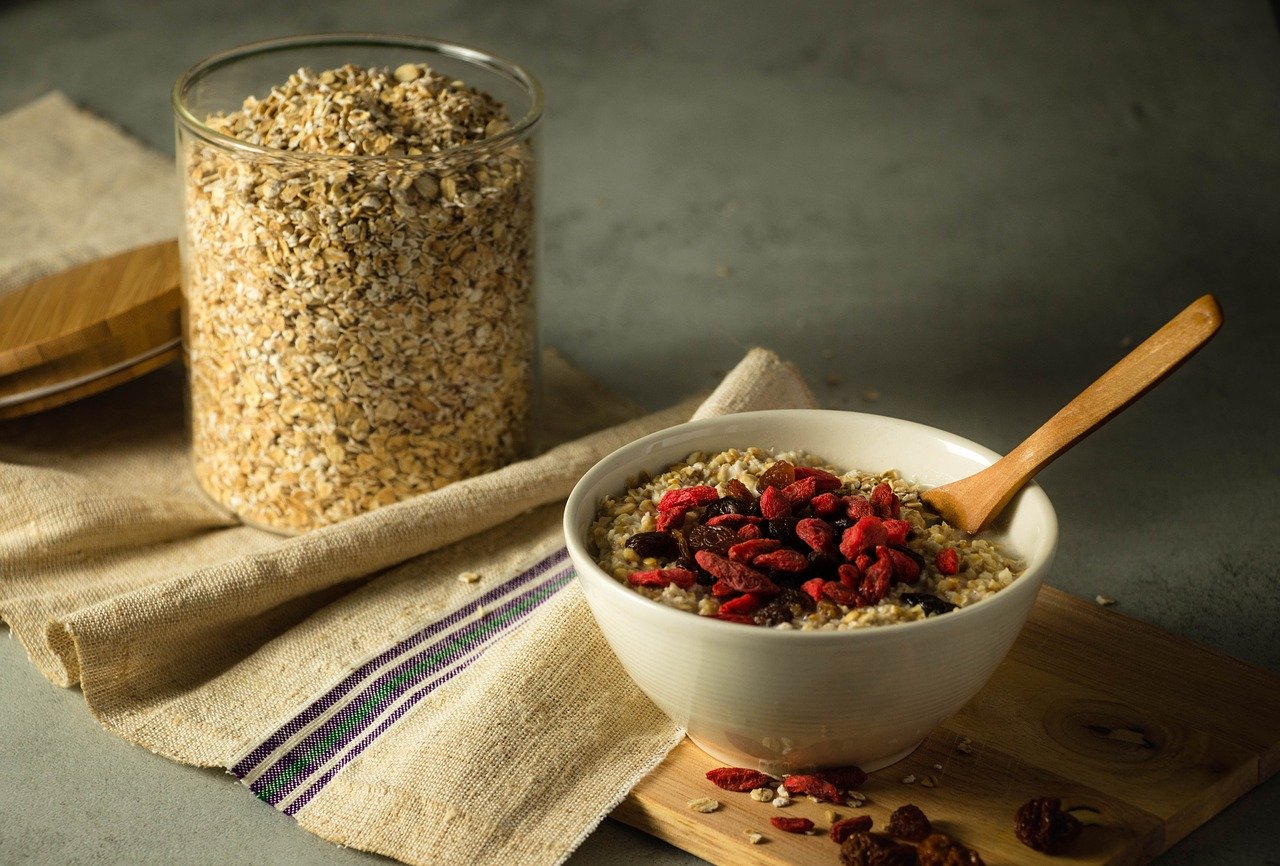
I have discussed the health benefits of oats in great detail in another post on this blog.
Clinical studies have found that regular oat consumption can lower your blood pressure significantly.
Try to make oats a part of your daily diet. It should be in your list of foods that lower blood pressure naturally.
Rocket
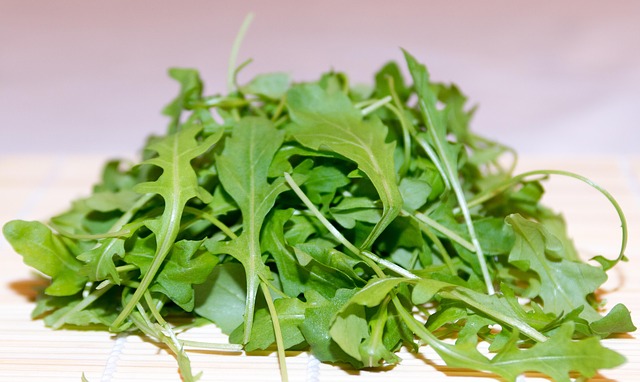
Don’t fall off your seat. I’m talking about a veggie, not a space rocket.
Rocket is not a widely available leafy veggie in India, though some higher end supermarkets stock these. It is renowned for its peppery taste, and is delicious in salads.
Rockets also have a high nitrate content, and therefore have a beneficial effect on blood pressure.
Honorable Mentions
Chinese cabbage, celery, parsley, lettuce and fennel are other veggies that have high nitrate content and can lower your blood pressure.
Fish intake is closely linked to lower blood pressure, especially when combined with weight loss.
Closing Remarks
As you can see, there are many foods that lower blood pressure naturally. I have only listed some of the common ones. Mix and match your fruits and vegetables to get the most benefit out of them.

Dr Vivek Baliga is a medical practitioner and the director of a diagnostic center – Baliga Diagnostics – in Bangalore. He specializes in diabetes and heart disease, and is a visiting consultant in Internal Medicine at corporate hospitals. He is married and has one son.

Good info Dr.
It is useful and supported by studies.
It is good to remind again and again though some know it but forget after reading.
I will make sure I follow this advice meticulosly along with medication.
Doctor, can a diabetic patient take beetroot on a weekly basis. Does beetroot raise the sugar levels. Pl advise.
Usually there is no problem with veggies in diabetes. Most vegetables are perfectly safe.
Thank you Doc
Hello Doc.. The articles are great and very helpful.
I hope you can also give some herbal/ home remedies, foods and exercises for Prostrate Management (BPH)… how to avoid BPH tables as most of them have serious side affects.
Thank u Dr Vivek. It’s heartening to learn that BP can b lowered naturally. Yr blogs are most welcome.